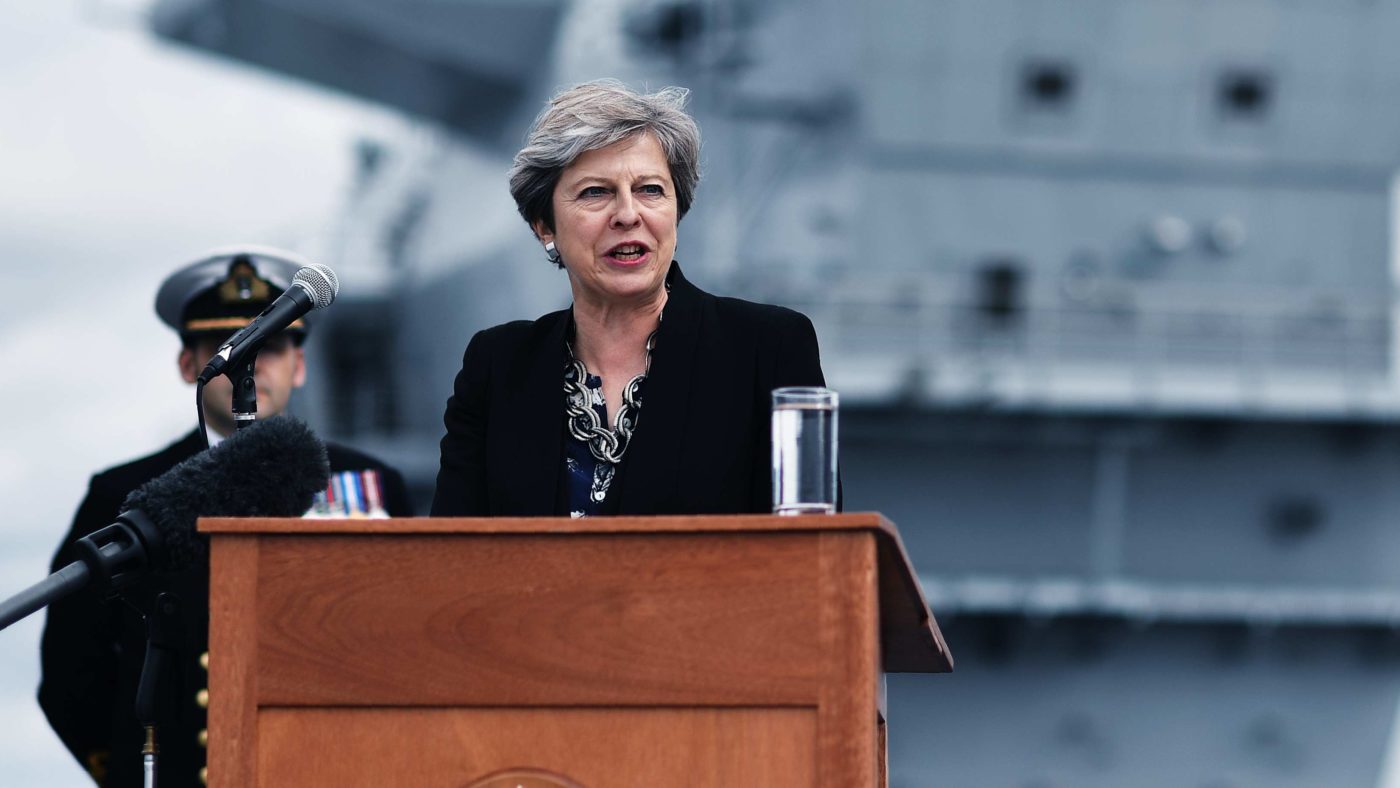On her return from holiday, the Prime Minister visited Portsmouth. Showing the deftness of touch that has become her trademark, she was quick to comment on the big issue of the day. Look, she said, of course “we want to ensure people’s safety at work” but, come on, “it can’t be right for Big Ben to be silent for four years”.
Mrs May’s attention to the question of whether or nor Big Ben should be “silenced” seemed entirely appropriate. After all, this is the Age of Brexit and Brexit is a question of muscular symbolism just as much as it is a matter of refashioning Britain’s place in, and relationship with, the world. Big Ben, like Psmith’s “Cosy Moments”, will not be muzzled.
The Big Ben pico-storm is both summer froth and glumly revealing. It cannot disguise the fact that Mrs May’s government is a house divided and a house paralysed by its divisions. The Government would like us to believe that a truce has been declared between the sceptics, such as Philip Hammond, and the true believers, such as Liam Fox. But a shared newspaper byline cannot disguise the fundamental, and fundamentally irreconcilable, differences between the two wings of the cabinet.
One wants a no-fuss Brexit, the other suspects, with some reason, that a no-fuss Brexit is a shallow Brexit. One wants a grey Brexit, the other demands a colourful, red white and blue, Brexit. One wants a Brexit many voters might struggle to notice; the other requires an unambiguous Brexit that cannot be ignored. What’s the point of reclaiming our national independence if the people do not feel, and are not refreshed by, the bracing winds of freedom?
More generally, however, the government faces a more profound question: what is it for? An orderly – and popular- Brexit, of course, but beyond that, what? The manifesto upon which Mrs May was almost-but-not-quite elected no longer exists. Its demise takes with it the Government’s non—Brexit sense of purpose.
Having flirted with bold, even radical, ideas in the now-defunct manifesto, Mayism is now an idea-free zone. On housing, on student fees and the related question of so-called intergenerational-fairness, the Government has little to say. The so-called Northern Powerhouse has run out of steam. Long-term questions on the funding of social care have been shoved into the sidings. The NHS’s perennial struggle – how to cope with demand rising faster than resources – remains acute.
Bigger questions remain, too. How are the trade-offs between opportunity and fairness to be managed? How does the UK reorganise itself to prepare for an age of great technological disruption? Above all, perhaps, how does the Government inspire confidence in an age defined by scepticism?
Policy matters, of course, but so does personnel. Almost all May’s senior cabinet colleagues are still tarnished by their respective roles in the Brexit referendum. Remainers doubt the sincerity and competence of Leavers and vice versa. Good faith is in notably short supply. A reshuffle promoting newer, fresher, voices might provide some relief but the greater problem is the Government’s fundamental lack of purpose. A reboot is required but renewal demands vigorous, dynamic, leadership.
Even energetic governments have limited bandwidth and it is not obvious May’s ministry can be considered energetic. The mission appears to be survival, not leadership. If there is a coherent yet also realistic Brexit worldview – a vision of the kind of Britain May imagines and would like to lead – it is not one that has been shared with the public.
Mrs May became Prime Minister because all her rivals ruined themselves and each other. Her dullness was her most significant strength; she would be a stolid premier for a febrile time. Competence would be her watchword. And, for a time, it seemed to work; it even promised to be enough.
But that was before a general election which stripped the bark from Mrs May’s authority. Her reputation for competence has taken the kind of battering from which it is unlikely to recover.
And in place of confidence, then what? Strife? Quite possibly. Confusion? Certainly. Every smoke signal emanating from Whitehall suggests the actual process of Brexit, as opposed to the psychological satisfaction gained from the decision itself, is proving to be hideously more complex than might be reckoned ideal. Ministers have not yet been straight with the public and the longer they peddle the line that all will be right on the night, the more they set themselves up for a fall should the public begin to worry that, actually, life’s just a little more complicated than that.
On the Irish border, for instance, London assures us everything is fine and perfectly workable. The UK’s frontier with the EU will not be a real frontier, or at least not the kind of border people imagine when they hear the term. Dublin, awkwardly, disagrees. This, the Irish say, is not an “Irish Question” at all; it is instead a “British Question” and you got yourselves into this mess, so you can get yourselves out of it.
As the European Commission says, frictionless trade is not possible outside the single market and customs union. This is not a threat, or a rejection of British proposals; it is merely a statement of a clear and present truth. Brexit is not a Lampedusa novel: it is not possible for everything to change so things may remain the same. All of which leads inexorably towards the dismal conclusion that the reason Mrs May keeps her cards so very close to her chest is that they are very low-ranking cards.


